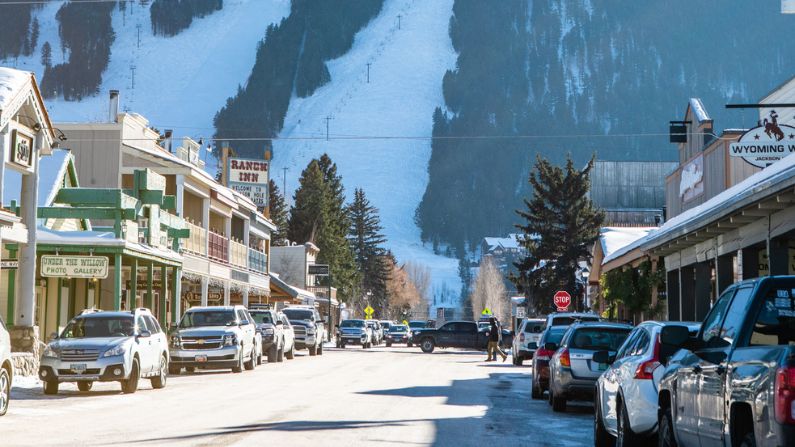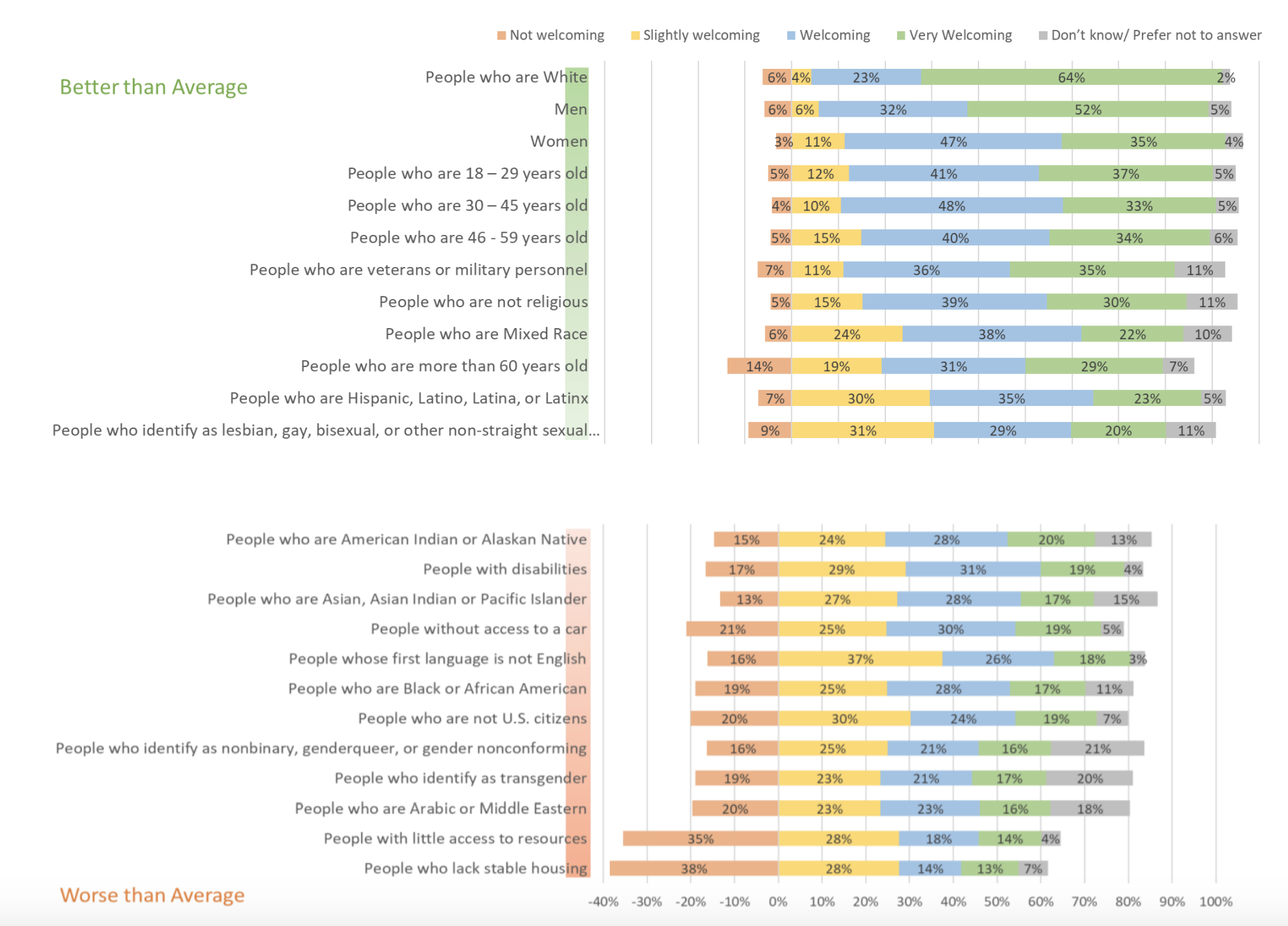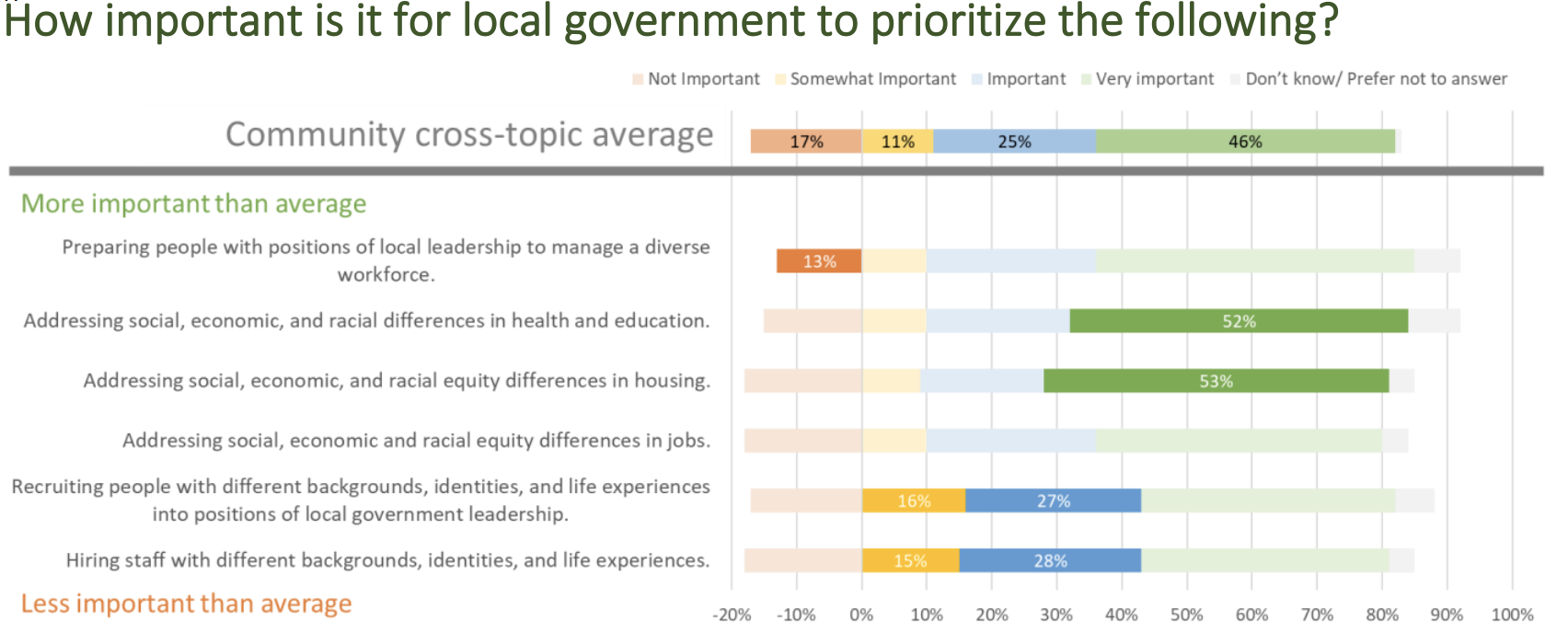Jackson has its first baseline picture of what it’s like for marginalized groups living in town. Survey results from last summer reveal widespread accounts of discrimination, as well as support for the town prioritizing equity and inclusion.
The town administered the five-question survey as part of an effort to address equity issues. This came on the heels of the creation of the Equity Task Force in 2021, according to Susan Scarlata, the town’s communications officer.
These efforts mark a shift in how the town tackles these issues.
“Overall, it’s been more recent that there’s been some focus on I’d say the human element in our community,” Scarlata said.
The data
Almost 700 community members responded to the survey, which was promoted by the town and Voices JH — a nonprofit which engages the local immigrant community.
The majority of respondents (70%) from one or more marginalized groups reported not feeling very welcome in the community. Instances of discrimination were reported among females, transgender people, seniors and people with disabilities.
Additionally, over a third of respondents (33%) whose first language is not English reported instances of discrimination in Jackson.
One anonymous participant wrote this happens “for not speaking English and being Mexican.”
Another wrote, “I once got asked: aren’t you worried they will ship you back? Often, I get asked: when are you going back to your country?”
Scarlata said that, while numbers are important, these anecdotal reports also help paint a picture of experiences of discrimination.
“I think there can be an idealism in mountain towns and tourist towns that some things that occur in bigger places aren’t happening here,” she added.
‘Not black and white’
Jordan Rich, the director of empowerment at Voices JH, welcomed the town’s efforts with the survey and appreciated the complexity of the results. She said she’s also heard about positive experiences in Jackson from fellow staff — many of whom are immigrants.
“They consistently share with me how much they love Jackson, how kind the people are here, how beautiful it is here, how lucky they feel to live here,” Rich said. “They’ve traveled a really long way to build a life and a home here, and they’re so committed to that, to the community.”
But, at the same time, she has heard about high levels of discrimination.
“When you ask immigrant individuals if they’ve ever experienced racism or discrimination, they almost always have a story,” she said. “Living here isn’t black or white.”
The survey also found people who don’t have stable housing and have little access to resources may find the town unwelcoming.
“This is NOT a place to come if you don’t have resources,” one survey respondent wrote.
Another wrote, “Newcomers are not welcome. Young adults who want to put down roots are not welcome. Unless you are from here or own a home here, you are not welcome.”
Town council response
On Monday, town staff presented the results to council members. Scarlata told them her key takeaway was how supportive respondents were of work related to equity and inclusion.
The majority of respondents (71%) said it was “important” or ”very important” for the community and local government to prioritize these actions. The most popular justification was to “prepare people with positions of local leadership to manage a diverse workforce.”
Council members welcomed the data and said they recognized it as a good start.
“I view it as a really healthy, long overdue conversation,” said councilmember Jim Rooks, who also acknowledged some community members have frustrations about the town spending time and money on equity efforts.
Councilmember Jess Chambers said that it’s a difficult topic for her to talk about, but that it reaffirms her drive to make decisions through an equity lens.
She recommended the council focus on translating the survey results into policy.
“I don’t want us to get lost in this idea that we need more numbers, we need better surveys,” Chambers said during the meeting. “I want it to guide my decisions and my comments when we’re focusing on a housing project, public transportation, lack of access.”
What’s next
The town is starting to take related actions thanks to recommendations from its equity task force. This includes translating all town documents and signs into Spanish.
Scarlata said this is critical, since about three people come into the town hall every day for translation help,
“The more that the town has signage and all of its things in Spanish, the more welcome folks will feel,” she said.
The town may consider conducting the survey every two years, with the help of more community organizations, like Voices JH.
“I do think we have the structures and the vehicles we need to make changes in these results,” said Rich, from Voices JH. “I’m just hopeful that we do this survey in two years and we see some changes, that these results are an instigator for forward momentum.”








